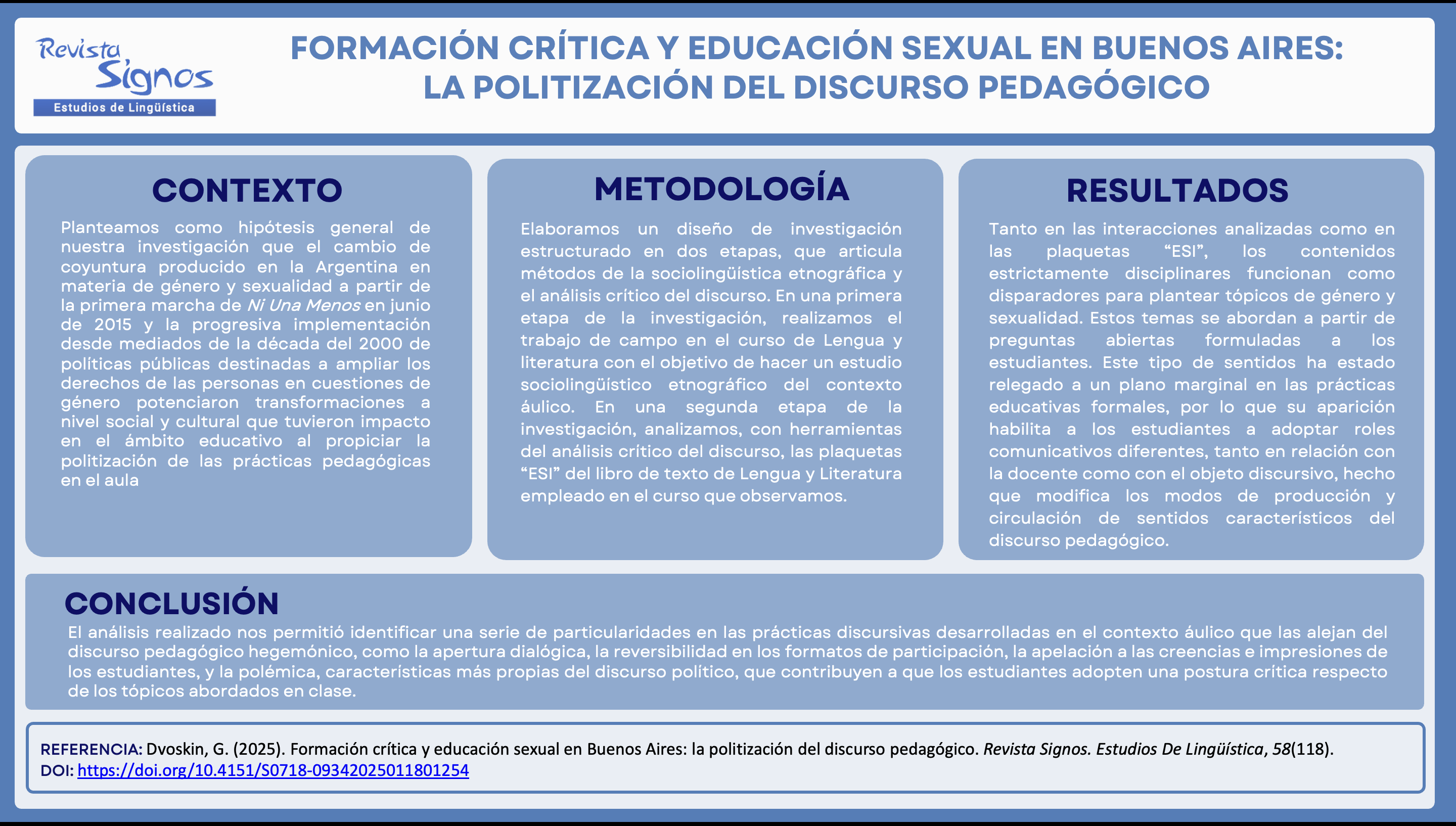Critical training and sex education in the City of Buenos Aires: the politicization of pedagogical discourse
DOI:
https://doi.org/10.4151/S0718-09342025011801254Keywords:
Critical sociolinguistics, school etnography, Sex education, Critical thinking, PolemicAbstract
In this article, we analyze, from the approach of critical sociolinguistics, discursive practices developed in a high school Language and literature course, in the Autonomous City of Buenos Aires, during the year 2022, in which gender and sexuality issues were problematized. Our research hypothesis is that the change of conjuncture in gender issues produced in Argentina in 2015, from the Ni Una Menos march and the wide dissemination of feminist discourses, had a strong impact on educational contexts, mainly by enabling in classroom practices the circulation of, on the one hand, gender issues that transcend the field of health and hygiene; and, on the other hand, perspectives from the social sciences and humanities. Consequently, the problematization of these issues in the classroom would bring with it a social, historical and political dimension, a fact that implies a change in the pedagogical models underlying educational practices and would contribute to the critical formation of students. The results obtained from the analysis of classroom interactions and the textbook used in the course allowed us to identify a series of particularities in these discursive practices that distance them from the hegemonic pedagogical discourse, such as dialogic openness, reversibility in classroom participation formats, appeal to students' beliefs and sensations, and polemic, characteristics more typical of political discourse and that contribute to the critical positioning of students with respect to the topics addressed in class.

Published
How to Cite
Issue
Section
License
Copyright (c) 2025 Revista Signos. Estudios de Lingüística

This work is licensed under a Creative Commons Attribution 4.0 International License.
Copyright agreement:
Authors who have a manuscript accepted for publication in this journal agree to the following terms:
Authors will retain their copyright and grant the journal the right of first publication of their work by means of this copyright agreement document, which is subject to the Creative Commons Acknowledgment License that allows third parties to share the work provided that its author and first publication in this journal are indicated.
Authors may adopt other non-exclusive license agreements for distribution of the published version of the work (e.g., depositing it in an institutional repository or publishing it in a monographic volume) as long as the initial publication in this journal is indicated.
Authors are allowed and encouraged to disseminate their work via the internet (e.g., in institutional publications or on their website) before and during the submission process, which can lead to interesting exchanges and increase citations of the published work (read more here).


